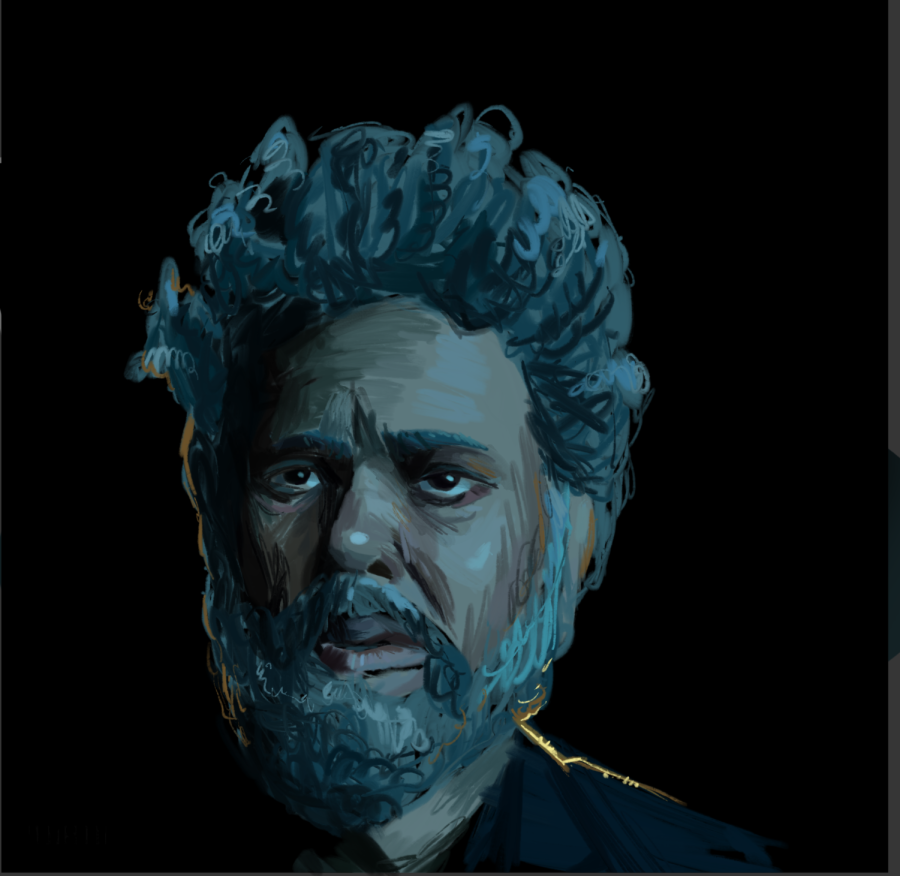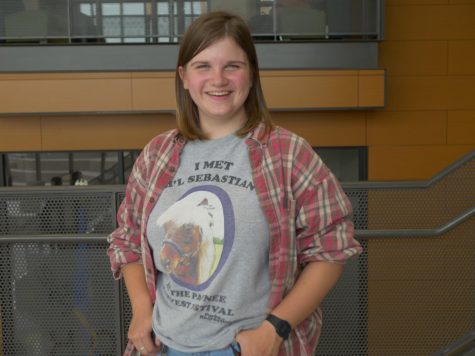The Weeknd’s “Dawn FM” brings disco-pop to the 21st century
February 8, 2022
“Looking back is a bitch, isn’t it?” R&B legend Quincy Jones chuckles at the end of “A Tale by Quincy,” a spoken-word interlude in the middle of The Weeknd’s darkly energetic new album, “Dawn FM.” It’s an apt motto for Abel Tesfaye’s fifth studio album, which follows the 31-year-old superstar through an early morning self-reflection session set against a shimmering set of synths and driving, danceable percussion. On “Dawn FM,” The Weeknd continues his reign as this generation’s prince of pop while paying homage to 80s disco-pop royalty.
Tesfaye has come a long way from his early mixtapes, the gritty and more-than-suggestive collection known as the “Trilogy.” Since their releases in 2011, The Weeknd has shattered several Billboard records, played a Super Bowl halftime show, and become one of the best-selling artists of all time. Over the last decade, Tesfaye has developed a formula for creating consistently interesting, catchy, and lucrative music without having to compromise his artistic integrity. He exercises this formula on “Dawn FM,” a mosaic in which every track adds to a broad, conceptual picture, yet is just as effective as an individual piece of art.
On the introductory title track, the listener is beckoned into the album’s world with a subtle synth and the sounds of birds chirping. The ambient, atmospheric aura that weaves throughout the tracklist is the clear influence of producer Daniel Lopatin, better known as experimental electronic artist Oneohtrix Point Never. Lopatin’s contributions give the album a sort of grandiose, cinematic quality that is irresistibly engrossing. “‘Cause after the light, is it dark? Is it dark all alone?” Tesfaye asks, with heavenly vocals, giving a preview to the questions regarding love, lust, and loneliness he will come to ask. From there, the voice of a charismatic disc jockey (none other than actor Jim Carrey) invites the listener to come into the light and enjoy an hour of commercial “free-yourself” music. Carrey interjects throughout the album to remind the audience not to let the bangers distract them, that this is a singular vision, an interconnected narrative project.
From there, we are taken into an incredible run of club-ready smash-hits, some of which will surely be unavoidable on Top 40 radio for the coming months. The Depeche Mode-inspired “Gasoline” describes a relationship being uprooted by addiction to a set of 80s electronic drums and endlessly rising and cascading synths. Without overanalyzing, it provides a dark but danceable beat, but when reading into the lyrics, the song depicts an alarming tale of a man essentially seeking annihilation. “How Do I Make You Love Me?” and “Take My Breath” show Tesfaye paying his respects to the original king, Michael Jackson with his smooth falsetto and pulsing bass-beats, and legendary pop producer Max Martin’s presence on the tracks cement them as infectious pop perfection. The intersection of Martin’s formulaic but always-successful style and Lopatin’s experimental tendencies is a surprising one, but births a host of chart-killing tracks with an avant-garde spin. They’re catchy, but not nauseatingly so, and are sonically complex enough to warrant multiple listens.
The features on the albums are spare but strong. Tyler, the Creator makes an appearance on “Here We Go…Again,” a track clearly tailored for him, with its use of cutesy, twinkling bells and soulful, seductive chords. His low, always somewhat aggressive flow both complements and contrasts Tesfaye’s candied croon as he shows his apprehension towards committing to a relationship, “You gon’ sign this prenup.” The aforementioned Quincy Jones interlude involves the iconic artist looking back on his troubled upbringing and how his memories permeate into his current life. That is what Tesfaye ultimately aims to convey; without reflection, we end up in harmful, destructive cycles.
Individually, the songs on “Dawn FM” are perfect fodder for a night of going hard and losing yourself in a good time. As a full album, however, “Dawn FM” takes another shape, as an immersive, emotional experience. Tesfaye’s lyricism is simple, but often heartbreaking, painting himself as a man giving up on trying to be better. It’s his storytelling that makes the album more than a plethora of dance-pop hits; it’s an introspective personal statement that just so happens to make you want to bust a major move.



